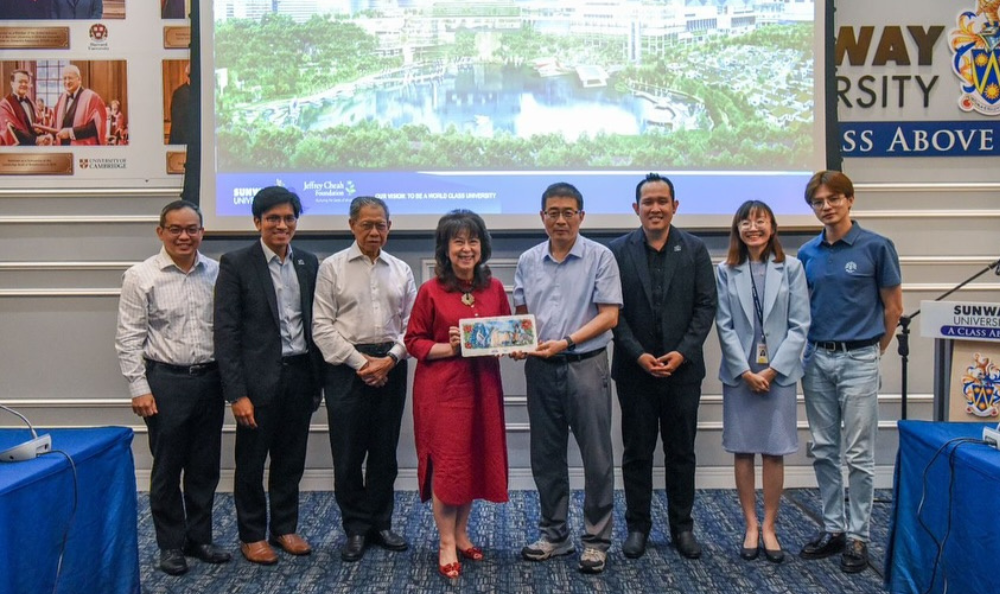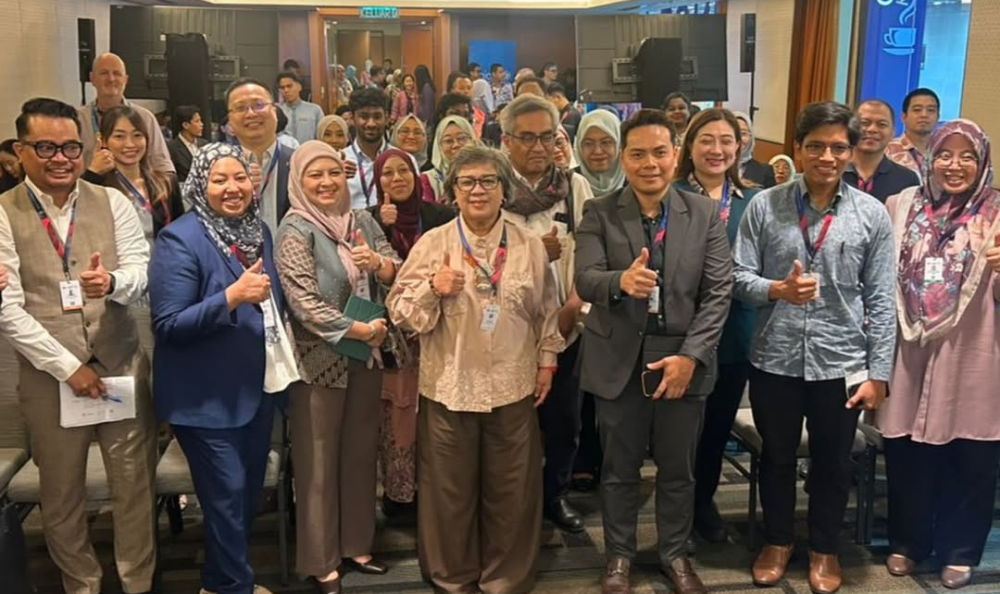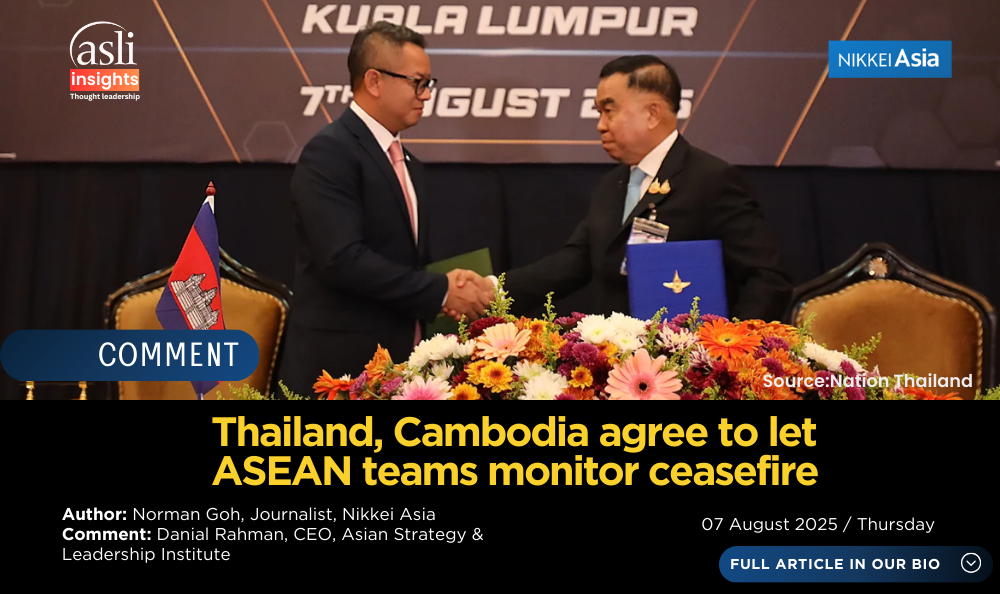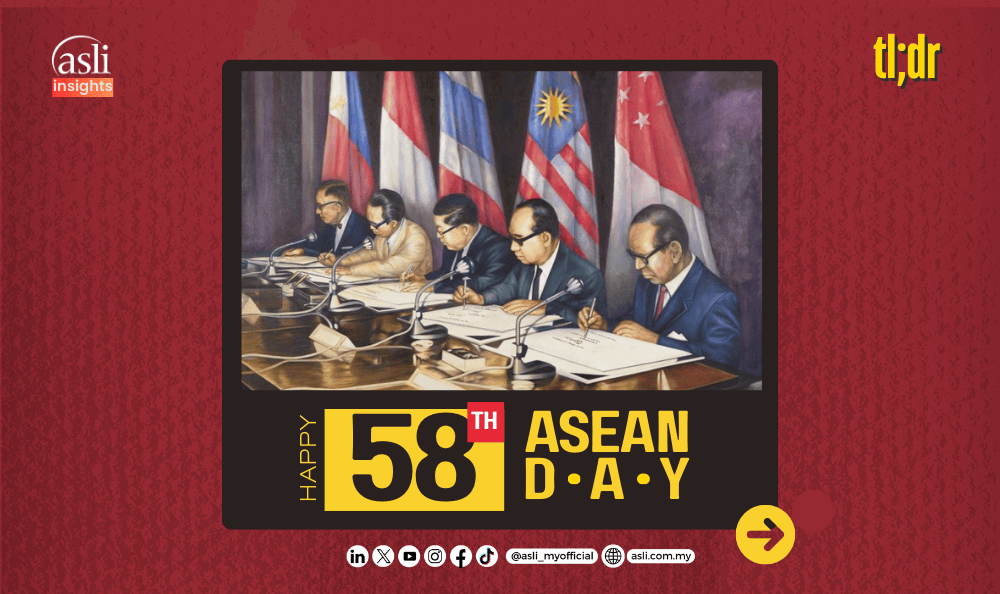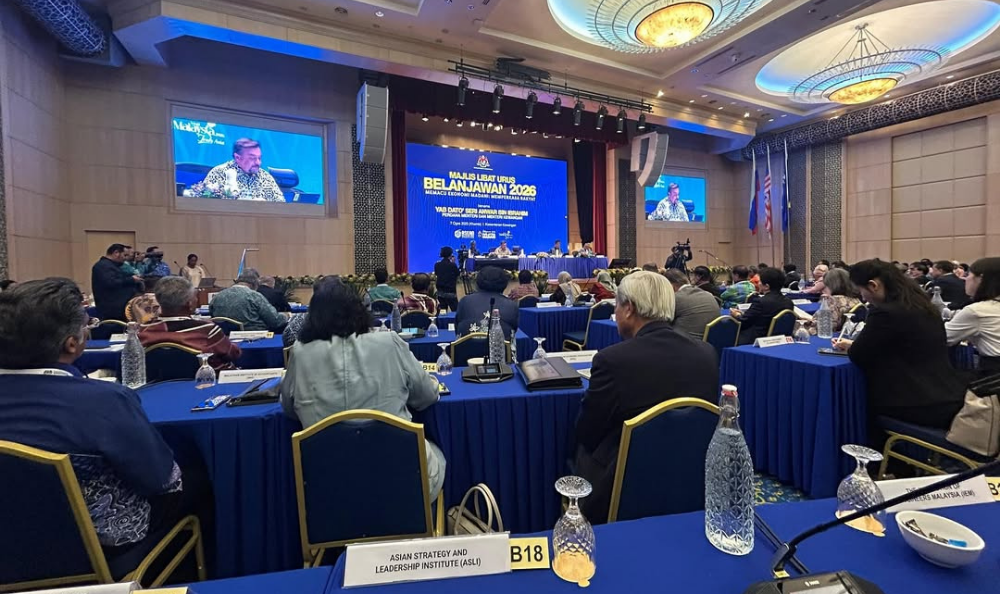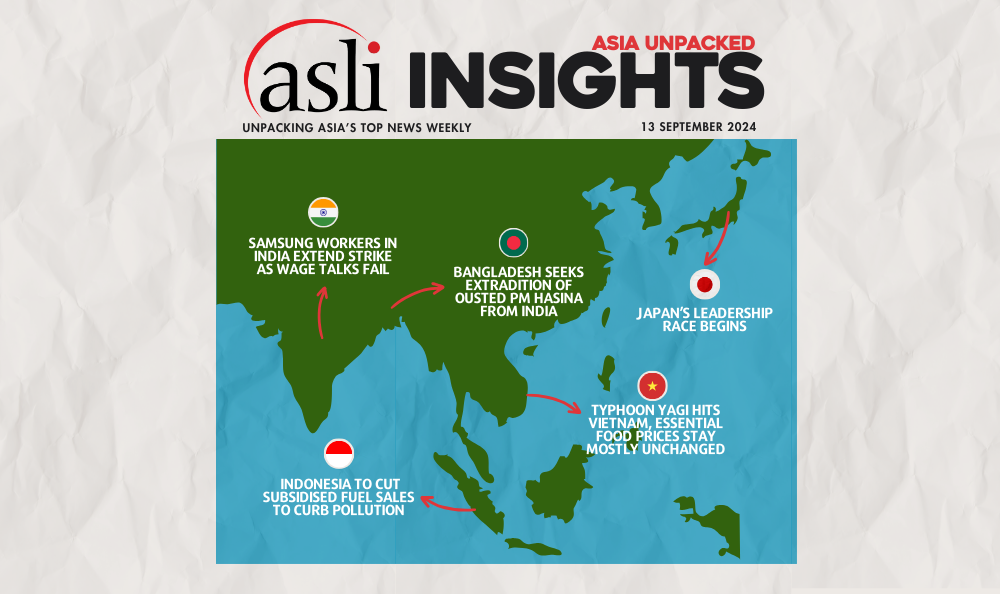
ASLI INSIGHTS: Asia Unpacked | 13 September 2024
ASLI is back with more ASLI INSIGHTS: Asia Unpacked!
Stay tuned for more top news in Asia handpicked by ASLI and for our curated weekly roundup!
This week’s Asia top news:
1) Japan’s Leadership Race Begins
Japan's leadership race has begun with nine candidates competing to succeed Prime Minister Fumio Kishida, whose term has been marred by scandals and economic challenges. The race is notable for featuring prominent figures like Shinjiro Koizumi, son of a former prime minister, and Shigeru Ishiba, a former defense minister. Two women, Sanae Takaichi and Yoko Kamikawa, are also in the running, marking a rarity in Japanese politics. The contest will determine the next leader of the Liberal Democratic Party (LDP), which has governed Japan for decades. The winner is expected to call snap elections later this year amid rising defense concerns and economic struggles.
Read more:
- https://www.channelnewsasia.com/east-asia/race-japan-next-pm-fumio-kishida-liberal-democratic-party-leadership-4603021
- https://news.cgtn.com/news/2024-09-12/VHJhbnNjcmlwdDgwNzk5/index.html
2) Typhoon Yagi Hits Vietnam, Essential Food Prices Stay Mostly Unchanged
Typhoon Yagi has devastated northern Vietnam, with the death toll rising to 226 due to landslides and flash floods. More than 100 people remain missing, and around 800 are injured. The storm, Asia’s strongest this year, has caused massive flooding, reducing food supplies to Hanoi. Prices for essential items like meat and eggs have remained stable, while fresh vegetables have surged by 20-40% due to farm destruction. Vendors report sufficient meat supplies, but vegetables like pumpkins and radishes are in high demand. Aid from countries such as Australia, Japan, and the U.S. is expected, while recovery efforts focus on restoring infrastructure and electricity.
Read more:
- https://www.freemalaysiatoday.com/category/world/2024/09/12/death-toll-in-vietnam-from-typhoon-yagi-rises-to-226/
- https://www.thestar.com.my/business/business-news/2024/09/12/prices-stable-in-hanoi-as-city-recovers-from-super-typhoon-yagi
3) Samsung Workers in India Extend Strike as Wage Talks Fail
Samsung workers at its Sriperumbudur plant in India will continue their strike for a fifth day after talks between the union, company management, and the Tamil Nadu government failed to reach an agreement. The strike, involving hundreds of workers, demands higher wages, shorter working hours, and recognition of the union. Samsung’s plant, which produces key appliances such as televisions and refrigerators, contributes 20-30% of the company’s annual revenue in India, a critical growth market. Despite the intervention of state officials, including Labour Minister C.V. Ganesan, no resolution has been reached. Samsung has stated it is engaging with workers to address grievances while complying with laws and regulations.
Read more:
- https://www.reuters.com/world/india/indian-state-minister-meet-samsung-officials-bid-resolve-strike-2024-09-12/
- https://asia.nikkei.com/Business/Electronics/Samsung-workers-in-India-ramp-up-wage-protest-as-strike-enters-third-day
4) Bangladesh Seeks Extradition of Ousted PM Hasina from India
Bangladesh’s International Crimes Tribunal (ICT) has started the legal process to extradite ousted Prime Minister Sheikh Hasina from India. Hasina fled to India in August 2024 after mass protests erupted against her government’s violent crackdown, which led to over 600 deaths. The ICT seeks to hold her accountable for overseeing the violence. Relations between Bangladesh and India have become strained, with Bangladesh pushing hard for her return under a 2013 extradition treaty. Interim leader Muhammad Yunus has urged Hasina to remain silent while in India until she is extradited. Public pressure continues to mount for her trial, while anti-India sentiment grows in Bangladesh.
Read more:
5) Indonesia to Cut Subsidised Fuel Sales to Curb Pollution
Indonesia plans to reduce the sales of subsidised, high-polluting fuels to improve air quality in cities like Jakarta. The government will upgrade the quality of 90-octane gasoline and biodiesel by lowering their sulfur content. State energy firm Pertamina will enforce these changes, using QR codes to track fuel purchases and restrict sales to certain vehicles. Motorbikes, public transport, taxis, and ride-sharing cars will still qualify for subsidies. Some fuel subsidies will be reallocated to Pertamina to help produce cleaner fuels. The reforms are part of Indonesia’s 2025 energy subsidy plan, which is being discussed in parliament, with an approval expected in September.
Read more:
🌱 Empowering Leaders, Advancing Societies.
